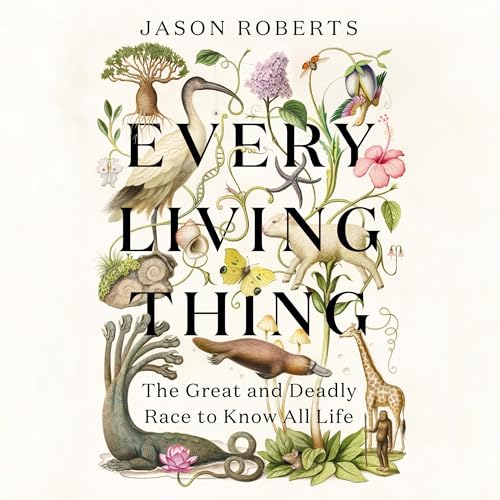What do you think?
Rate this book


14 pages, Audiobook
First published April 9, 2024
Could a single person possibly write an account of the entire Kingdom of Creation? To the man in Uppsala already attempting to do so, this did not read as hyperbole. Up until now Linnaeus had garnered critics, not competitors. Buffon had ample resources to command — his own fortune, his large staff of assistants and subordinates, and the prestige and backing of King Louis XIV. French naval officers now had standing orders to collect specimens for the Jardin during their voyages; all French physicians working abroad were strongly encouraged to submit specimens as well. Linnaeus had a significant head start, but Buffon could simply outwork him, fitting all the pieces together in a more consistent and logical manner.
In this new age of expansion, classification became another form of conquest. What better way to “civilize” a region than to inventory its flora and fauna, scouring them of native names and naming them anew? British naval ships, less burdened in peacetime, now had ample room for naturalists to accompany them on voyages. British citizens abroad, a rapidly growing colonial class, shipped thousands of specimens homeward. Seeing the value of aligning political interests with developments in natural history, the British government threw its support behind the Linnean Society.
An NSF project called Dimensions of Biodiversity is using gene sequencing to identify species down to the microbial scale, and while it will take years for full results to emerge, project members already estimate the total number on Earth is more than twenty orders of magnitude greater than previously understood. “Until now, we haven’t known whether aspects of biodiversity scale with something as simple as the abundance of organisms,” reports Dr. Kenneth J. Locey, a postdoctorate fellow at Indiana University and a Dimensions of Biodiversity researcher. “As it turns out, the relationships are not only simple but powerful, resulting in the estimate of upwards of one trillion species.” One trillion species. That would mean we’ve discovered and recorded only one-thousandth of one percent of all possible entries in a catalogue of life.
Declaring just four varieties of humans (or subspecies; Linnaeus was never clear on the matter) was to Buffon an error of the highest magnitude. To affix inherent attributes to them was repugnant.one might expect a more detailed discussion about what made “affix[ing] inherent attributes” so “repugnant.” Instead it was inferred, almost as if a thorough delving into the assertion made might be too controversial, forced to use uncomfortable language, or reopen festering wounds. But that should be the point, I think, about the importance of writing about such a potentially divisive historical fact. It’s the least understood topic that everyone has an opinion about – vocal or not – and the fact that it may be grounded in a seemingly flippant, overly biased categorization in an academic book is worthy of a lengthy treatise in and of itself.